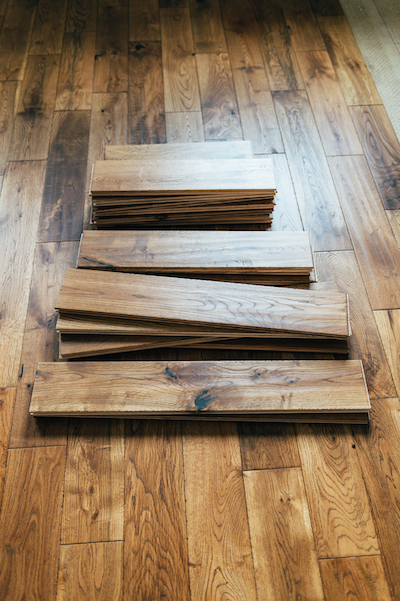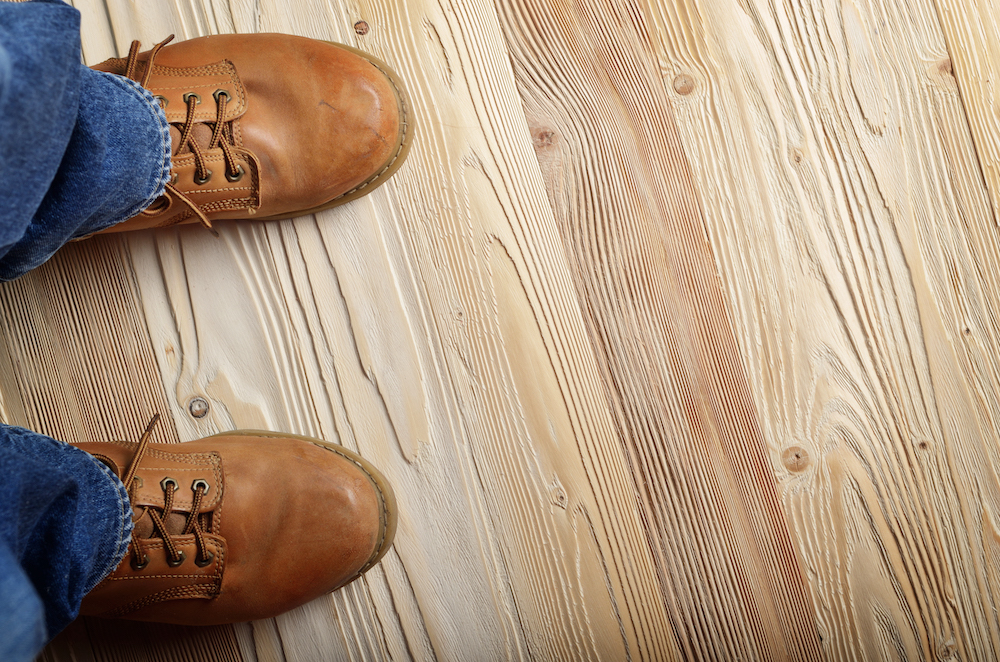Hardwood flooring is a timeless choice for any home, offering natural beauty, durability, and the potential to increase your property value. However, even the sturdiest floors will eventually show signs of wear and tear, prompting many homeowners to consider whether it’s time for a replacement. Knowing when to get new hardwood flooring can be tricky, so let’s go over the key indicators that suggest it’s time for an upgrade, along with some tips on making the right decision.
Signs That You Need New Hardwood Flooring in NJ
1. Severe Scratches and Gouges
While minor scratches and dents are typical with hardwood flooring, extensive surface damage can significantly diminish the appearance and quality of your floor. If your floors are covered in deep scratches, gouges, or dents that sanding and refinishing can no longer fix, it may be time to consider new hardwood flooring. These blemishes not only detract from the aesthetic appeal of your home but can also compromise the integrity of the wood, making it more susceptible to further damage.
In high-traffic areas, especially hallways, kitchens, and living rooms, the finish on the wood wears down faster, exposing the raw material to damage. If your floors are noticeably scratched and dull despite regular maintenance, it’s a clear sign they may be beyond repair.
2. Water Damage and Moisture Issues
One of the biggest enemies of hardwood floors is water. Whether it’s from a plumbing leak, a spill that wasn’t cleaned up promptly, or excess humidity, water can cause irreparable damage to hardwood flooring. If your floors are showing signs of water damage—such as warping, buckling, or dark stains—it may be time for a full replacement.
Warped boards usually indicate prolonged exposure to moisture, causing the wood to swell and distort. Similarly, dark stains often mean water has penetrated deeply into the wood, potentially leading to mold growth. In these cases, sanding and refinishing won’t be enough to restore the floors, and replacement is typically the best option.
 3. Excessive Wear and Tear
3. Excessive Wear and Tear
Hardwood floors can last for decades with proper care, but even the best-maintained floors will eventually show signs of aging. If your floors look worn out, with a dull, lifeless appearance despite refinishing attempts, they may have reached the end of their lifespan. This is particularly true for older hardwood floors that have been refinished multiple times. Each sanding removes a thin layer of the wood, and over time, there may not be enough material left to refinish again.
Additionally, if you notice uneven wear, such as areas where the finish has worn off completely or deep grooves have formed from years of foot traffic, these could be signs that it’s time for a new floor. Replacing your old hardwood flooring can rejuvenate the look of your home and create a fresh, updated space.
4. Creaking and Squeaking Sounds
All hardwood floors will make some noise, especially as they age, but excessive creaking and squeaking could indicate structural issues that go beyond the surface. This noise often happens when the subfloor or floorboards are no longer securely fastened, creating gaps where the wood moves and rubs against nails or the subfloor.
While some squeaking can be fixed by tightening loose boards or adding screws to secure the floor, widespread creaking throughout your home might signal a bigger problem. In these cases, it may be worth replacing the entire floor, as the creaking could indicate underlying issues with the subfloor or foundational problems that need to be addressed.
5. Persistent Gaps Between Floorboards
Seasonal changes can cause hardwood floors to expand and contract, leading to temporary gaps between the boards. However, if you notice permanent gaps that don’t close up even in humid weather, it’s a sign that the wood has dried out and shrunk over time. Large, visible gaps can become a trip hazard and make your floors look unsightly.
Persistent gaps can also let in moisture, dirt, and debris, further damaging the wood. If these gaps are widespread and cannot be corrected with sanding or refinishing, it may be time to consider new hardwood flooring.
6. Changing Interior Design Trends
Hardwood floors are a significant design element in any home, and their style can greatly influence the overall look and feel of your space. If you’ve recently remodeled your home or are planning a redesign, your existing hardwood floors might not complement the new aesthetic. This could be due to the color, finish, or style of the wood.
For instance, if your current floors are a darker shade but you’re aiming for a brighter, more modern look, installing lighter hardwood floors can dramatically transform your home. Similarly, if your floors have an outdated finish or pattern, replacing them with something more contemporary can update the entire space.
7. Structural Damage Beyond Repair
In some cases, the damage to your hardwood floors might go beyond scratches, stains, or gaps. Issues like termite infestations, extensive rot, or foundational problems can compromise the structure of the entire floor. If the wood has become soft, spongy, or shows signs of crumbling, it’s likely beyond the point of repair.
Structural damage like this often requires a complete floor replacement to ensure the safety and integrity of your home. Attempting to patch or refinish structurally compromised flooring can be a temporary fix at best and might lead to more extensive repairs down the road.
8. Increase Home Value and Appeal
If you’re planning to sell your home in the near future, installing new hardwood floors can be a worthwhile investment. Fresh, high-quality hardwood floors are a major selling point for potential buyers, who often prefer them to other flooring options like carpet or laminate. Upgrading your floors can help increase the value of your home and make it more appealing in a competitive market.
Many buyers appreciate the classic look and longevity of hardwood flooring, and new floors can give your home a polished, move-in-ready appearance. If your current floors are outdated, damaged, or detract from the overall presentation of your home, replacing them could be a smart decision that pays off at sale time.
Hardwood flooring is a significant investment, so it’s important to know when it’s time to replace rather than repair. If your floors are showing signs of severe damage, warping, creaking, or simply no longer match the style of your home, it may be worth considering a full replacement. New hardwood floors can breathe new life into your space, enhance your home’s value, and provide a durable surface that will last for decades. By paying attention to the warning signs and acting when necessary, you can ensure your floors remain a beautiful and functional part of your home for years to come.
Looking to Install New Hardwood Flooring in NJ?
If you’re looking for an experienced and reputable new hardwood flooring company in NJ, check out VCH Flooring today! We’re a flooring company in New Jersey that puts our employees and customers first. We offer high-quality vinyl, hardwood, carpet, and laminate flooring installation services to residents of South and Central NJ. Our core values are honesty, integrity, and transparency. Because your home is an investment, we offer personalized solutions for it. Our professional flooring solutions experts will assess your situation and propose the best flooring options for you to consider. They’re also ready to create custom flooring for your home according to whatever specifications you have. For more information, you can give us a call at (856) 393-1310 or check out our website.
Other Posts:
Comparing Wood Flooring and Laminate Flooring: Which Is Right for You?
Burlington County Flooring Company

